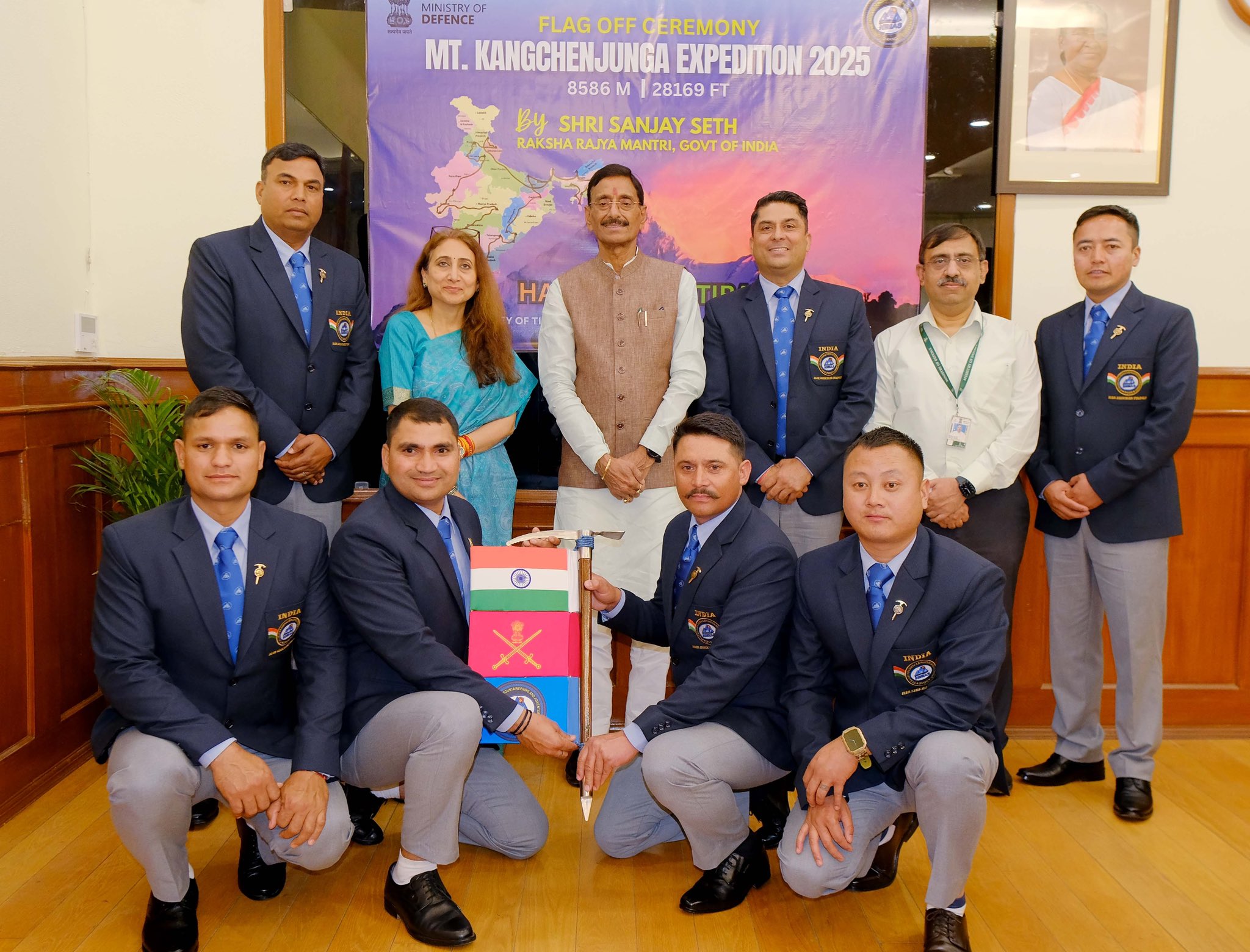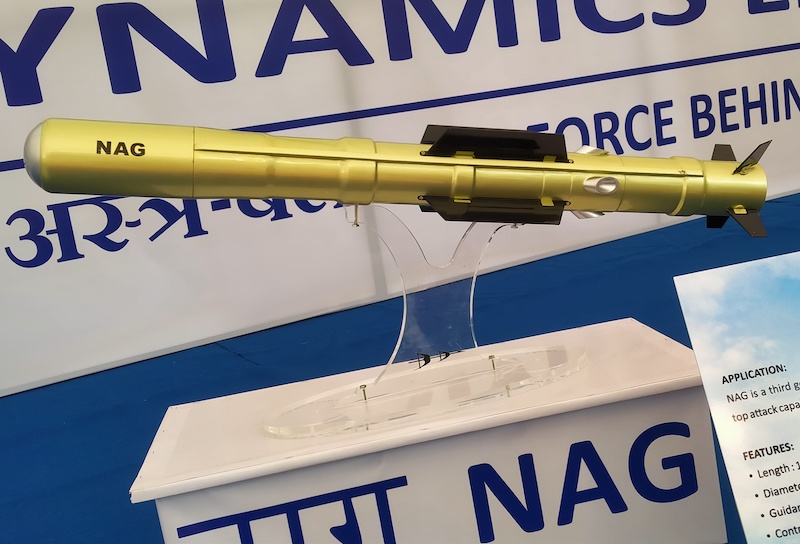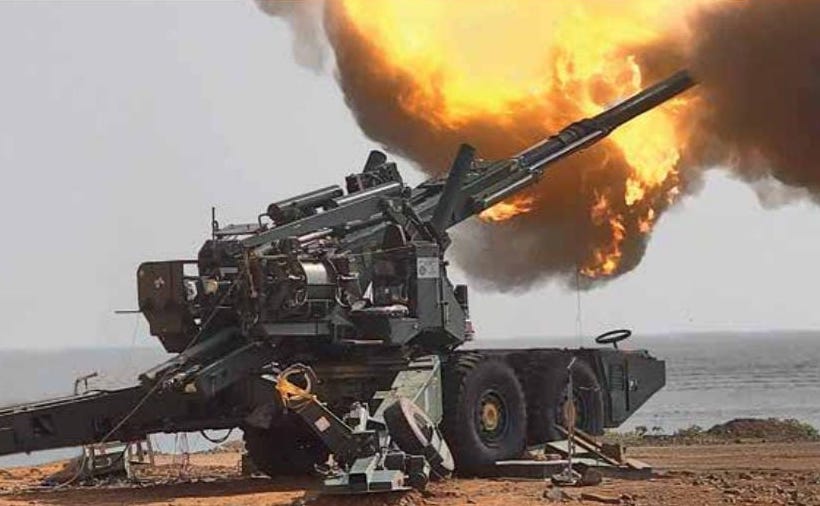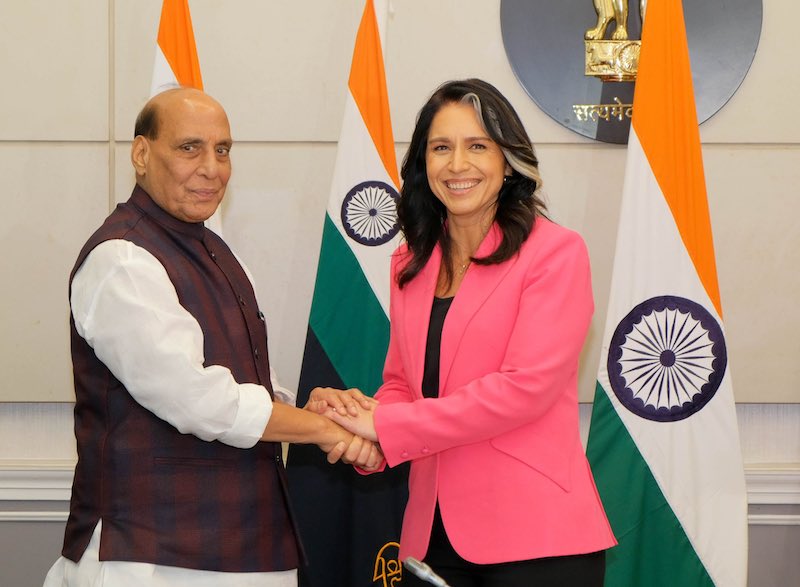 FDI inflows of over Rs 3454 crore have been reported so far
FDI inflows of over Rs 3454 crore have been reported so far
New Delhi: In May, 2001, the Defence Industry sector, which was hitherto reserved for the public sector, was opened up to 100 per cent for Indian private sector participation, with Foreign Direct Investment (FDI) up to 26 per cent both subject to licensing.
Further, Department for Promotion of Industry and Internal Trade allowed FDI under automatic route upto 49 per cent and above 49 per cent through government route wherever it was likely to result in access to modern technology or for other reasons to be recorded.
As per the data furnished by 80 companies in Defence and Aerospace sector, FDI inflows of over Rs 3454 crore have been reported so far (i.e. till June, 2020) in Defence and Aerospace sectors.
Further, out of this, FDI inflows of over Rs 2133 crore have been reported in Defence and Aerospace sector from financial year 2014-15 onwards.
The government has brought in significant reforms to promote FDI in Defence sector in the country, to complement and supplement the domestic investment, Minister of State for Defence Shripad Naik said in Rajya Sabha in reply to a question.
Through FDI, domestic companies are benefited by way of enhanced access to supplementary capital and state-of-art-technologies, and also exposure to global managerial practices resulting in employment generation and accelerated growth of the sector, he added.
Review of FDI policy is an ongoing process and changes are made in the FDI policy regime, from time to time, to ensure that India remains an attractive investment destination.
The Government of India in May 2020 has announced that the FDI limit in Defence Production will be raised to 74 per cent from existing 49 per cent under Automatic Route as part of the reform in defence sector to boost self-reliance.
It has been proposed to enhance the FDI in Defence Sector up to 74 per cent through the Automatic Route for companies seeking new defence industrial license and up to 100 per cent by Government Route wherever it is likely to result in access to modern technology or for other reasons to be recorded.
The government has taken the following policy initiatives to promote ‘Make in India’ in defence sector: -
• A new category of capital procurement ‘Buy {Indian-IDDM (Indigenously Designed, Developed and Manufactured)}’ has been introduced in Defence Procurement Procedure (DPP)-2016 to promote indigenous design and development of defence equipment. It has been accorded top most priority for procurement of capital equipment.
• The ‘Make’ Procedure of capital procurement has been simplified. There is a provision for funding of 90% of development cost by the Government to Indian industry under Make-I category. In addition, there are specific reservations for MSMEs under the ‘Make’ procedure.
• Separate procedure for ‘Make-II’ category (Industry funded) has been notified under DPP to encourage indigenous development and manufacture of defence equipment. Number of industry friendly provisions such as relaxation of eligibility criterion, minimal documentation, provision for considering proposals suggested by industry/individual etc. have been introduced in this procedure. So far, 49 projects relating to Army, Navy & Air Force, have been accorded ‘Approval in Principle’, out of which 9 projects have already been issued Project Sanction Order for prototype development.
• Under ‘Atmanirbhar Bharat’ campaign of Govt of India, Ministry of Defence (MoD) has prepared a list of 101 items for which there would be an embargo on the import beyond the timeline indicated against them. This would offer a great opportunity to the Indian defence industry to manufacture these items using their own design and development capabilities to meet the requirements of the Armed Forces in the coming years. This list includes some high technology weapon systems like artillery guns, assault rifles, corvettes, sonar systems, transport aircrafts, light combat helicopters (LCHs), radars and many other items to fulfil the needs of our Defence Services.
• An innovation ecosystem for Defence titled Innovations for Defence Excellence (iDEX) has been launched in April 2018. iDEX is aimed at creation of an ecosystem to foster innovation and technology development in Defence and Aerospace by engaging Industries including MSMEs, Start-ups, Individual Innovators, R&D institutes and Academia and provide them grants/funding and other support to carry out R&D which has potential for future adoption for Indian defence and aerospace needs. Under the iDEX scheme, a maximum of Rs 1.5 crore funding is available to a participant for development of a prototype. More than 700 start-ups participated in 18 problem statements pertaining to National Defence requirements, launched under 3 rounds of Defence India Start-up Challenges (DISC). 58 winners were announced after rigorous evaluation of applications by the High-Powered Selection Committees. Contracts have already been signed with several winners followed by release of first tranches and second tranche is also being released for some cases for prototype/ technology development.
• Government has notified the ‘Strategic Partnership (SP)’ Model in May 2017, which envisages establishment of long-term strategic partnerships with Indian entities through a transparent and competitive process, wherein they would tie up with global Original Equipment Manufacturers (OEMs) to seek technology transfers to set up domestic manufacturing infrastructure and supply chains.
• Government has notified a ‘Policy for indigenisation of components and spares used in Defence Platforms’ in March 2019 with the objective to create an industry ecosystem which is able to indigenize the imported components (including alloys & special materials) and sub-assemblies for defence equipment and platform manufactured in India.
• An Inter-Governmental Agreement (IGA) on “Mutual Cooperation in Joint Manufacturing of Spares, Components, Aggregates and other material related to Russian/Soviet Origin Arms and Defence Equipment” was signed during the 20th India-Russia Bilateral Summit in Sep 2019. The objective of the IGA is to enhance the After Sales Support and operational availability of Russian origin equipment currently in service in Indian Armed Forces by organizing production of spares and components in the territory of India by Indian Industry by way of creation of Joint Ventures/Partnership with Russian Original Equipment Manufacturers (OEMs) under the framework of the “Make in India” initiative.
• In Feb 2018, Government decided to establish two defence industrial corridors to serve as an engine of economic development and growth of defence industrial base in the country. They span across Chennai, Hosur, Coimbatore, Salem and Tiruchirappalli in Tamil Nadu and across Aligarh, Agra, Jhansi, Kanpur, Chitrakoot and Lucknow in Uttar Pradesh (UP).
• Offset guidelines have been made flexible by allowing change of Indian Offset Partners (IOPs) and offset components, even in signed contracts. Foreign Original Equipment Manufacturers (OEMs) are now allowed to provide the details of IOPs and products after signing of contracts. In order to bring more transparency and efficiency into the Offset discharge process, “Offset portal” has been created in May 2019.
• Defence Investor Cell has been created in Feb-2018 the Ministry to provide all necessary information including addressing queries related to investment opportunities, procedures and regulatory requirements for investment in the sector.
• Defence Products list requiring Industrial Licences has been rationalised and manufacture of most of parts or components does not require Industrial License. The initial validity of the Industrial Licence granted under the IDR Act has been increased from 03 years to 15 years with a provision to further extend it by 03 years on a case-to-case basis.
• Under the latest Public Procurement Order 2017, Department of Defence Production has notified list of 24 items for which there is local capacity and completion and procurement of these items shall be done from local suppliers only irrespective of the purchase value.










